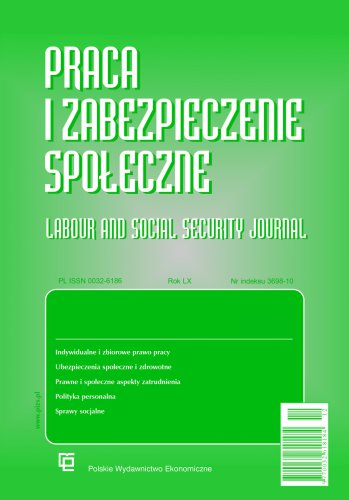The legal norm derived from art. 31 § 1 of the Labour Code gives the employer the right to appoint a selected person to perform activities in labour law matters. Prima facie provision seems obvious and does not require any special interpretation. However, after its deeper analysis, doubts arise regarding the scope of activities for which the person is appointed and the very method of making this appointment. Although in the explanatory memorandum to the bill introducing the provision, the bill's originator indicated the purpose of the amendment, nevertheless, the wording of the provision itself does not allow to conclude that the stated purpose of the act in this regard has been achieved. According to the drafters (as well as part of the doctrine and jurisprudence), the designation within the meaning of Art. 31 § 1 of the Labour Code covers all activities both in the field of individual employment relationships as well as in the field of collective labour law, both substantive and procedural activities. However, the above statement about the broad scope of the designation seems to be too far-reaching, giving rise to a possible risk for the employer in the form of potential consequences (also economic) of actions taken by the designated person. It is also difficult to assume that the president of the management board, authorizing a human resources employee to perform activities within the scope of Art. 31 § 1 of the Labour Code, he was aware that this employee could lead a collective dispute, conclude a company collective agreement, or conduct a social dialogue with trade unions. In such a situation, it seems indispensable to refer to the provisions of the Civil Code governing the institution of power of attorney. Such action will be possible through Art. 300 of the Labour Code, because the conditions for the application of the Civil Code are met in a case not regulated by labour law. The application of the provisions on the power of attorney allows both to precisely define both the method of designation itself and its scope. The analysis carried out in the text leads to the conclusion that the correct designation is achieved through the complementary application of Art. 31 § 1 of the Labour Code and the provisions of the Civil Code. The author distinguishes two stages of designation, in the form of the "stage of abstract designation" and the "stage of concrete empowerment". Consequently, it should be stated that Art. 31 § 1 of the Labour Code establishes the employer's general competence to appoint a person, while the manner of its implementation can be implemented only through the appropriate application of the provisions of the Civil Code on the power of attorney.
Keywords: appointed person; employer's representation; power of attorney; labor law case; acting on behalf of the employer

